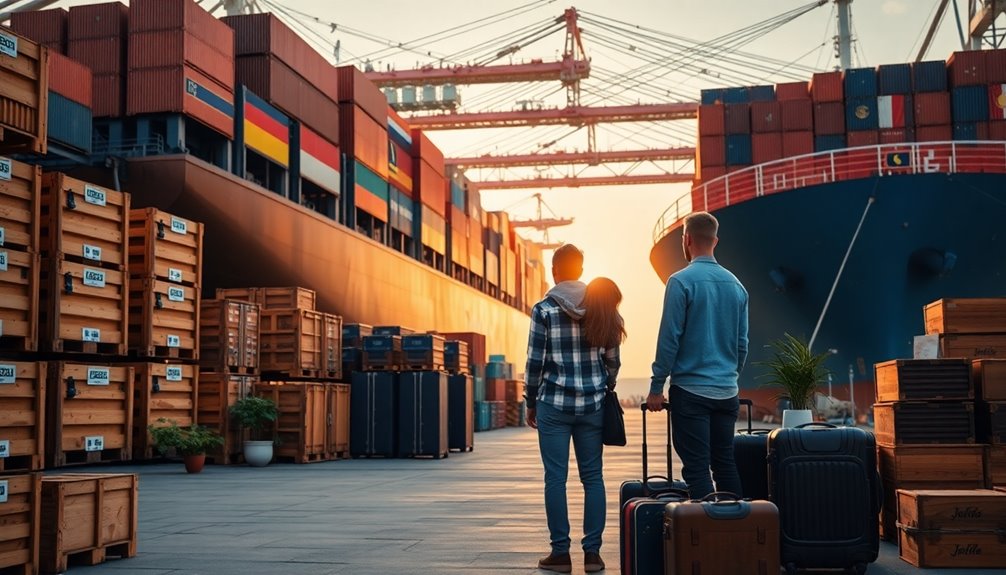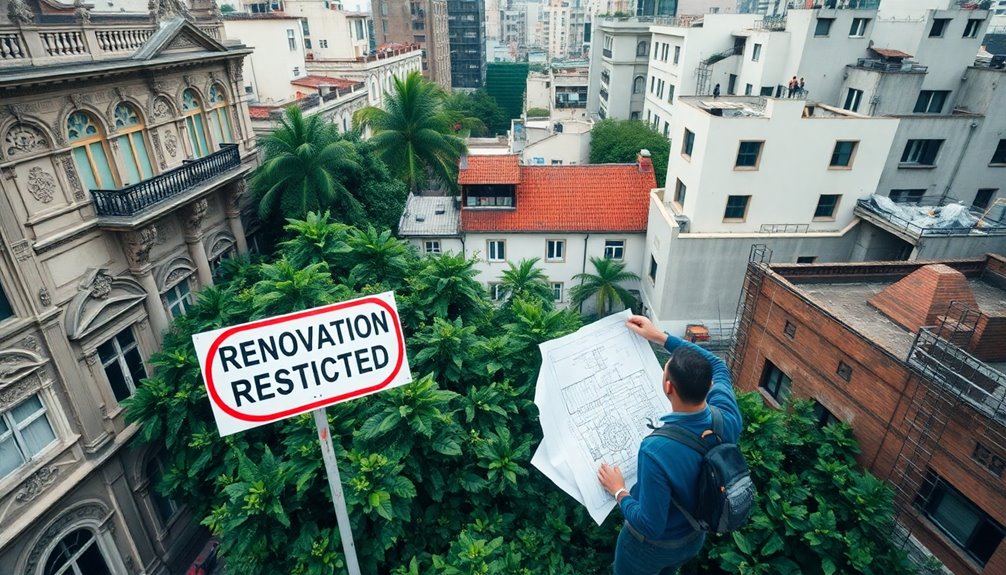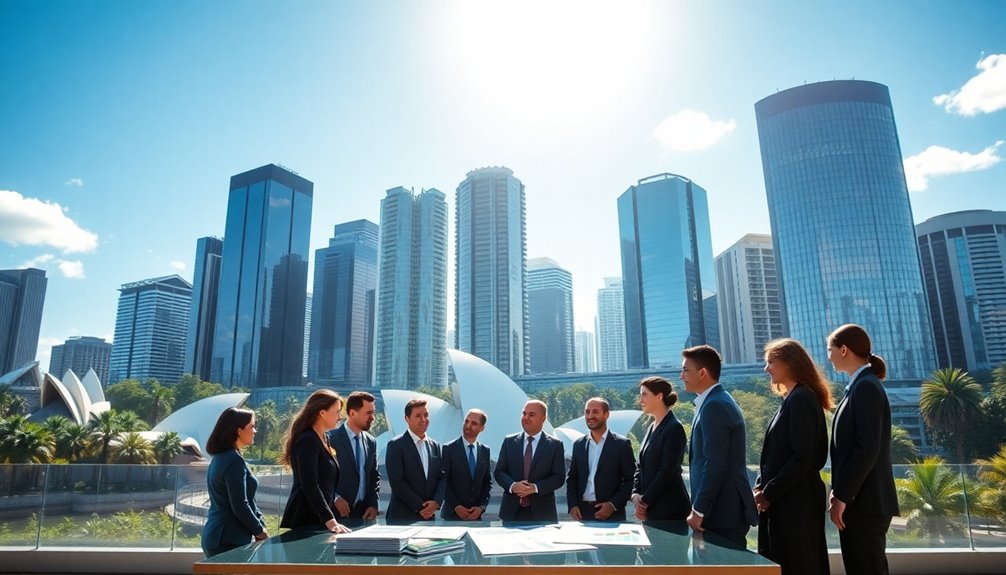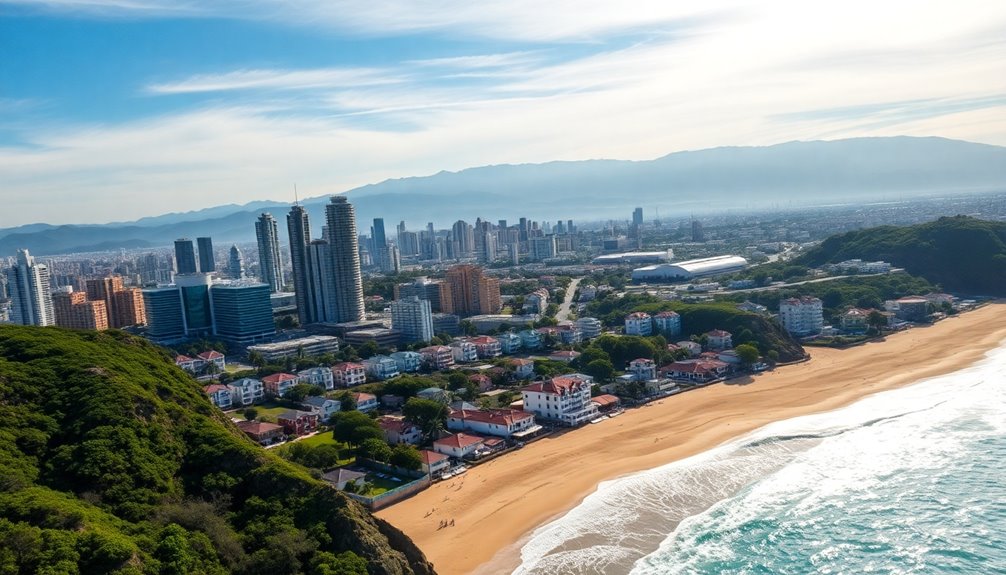When you're moving your belongings internationally, it's vital to assess your shipping options. Air freight is quick but costly, while sea freight is more budget-friendly. Consider using door-to-door services that manage packing and customs for you. Don't forget essential documentation like packing lists and bills of lading for a smooth process. It's also wise to declutter before your move by selling or storing unnecessary items, which can cut costs. Overall, understanding these factors makes your shift easier, and there's much more to explore regarding logistics and community support.
Key Takeaways
- Choose between air transportation for urgent moves or sea freight for cost-effective shipping based on your budget and timeline.
- Utilize door-to-door moving services that handle packing, customs clearance, and unpacking for a hassle-free experience.
- Ensure essential documentation like packing lists, Bills of Lading, and identity verification are prepared for smooth customs clearance.
- Declutter before moving by categorizing items to sell, store, or keep, reducing shipment volume and costs.
- Familiarize yourself with visa, residency requirements, and local customs in your new country to ease your transition as an expatriate.
Methods of Transportation
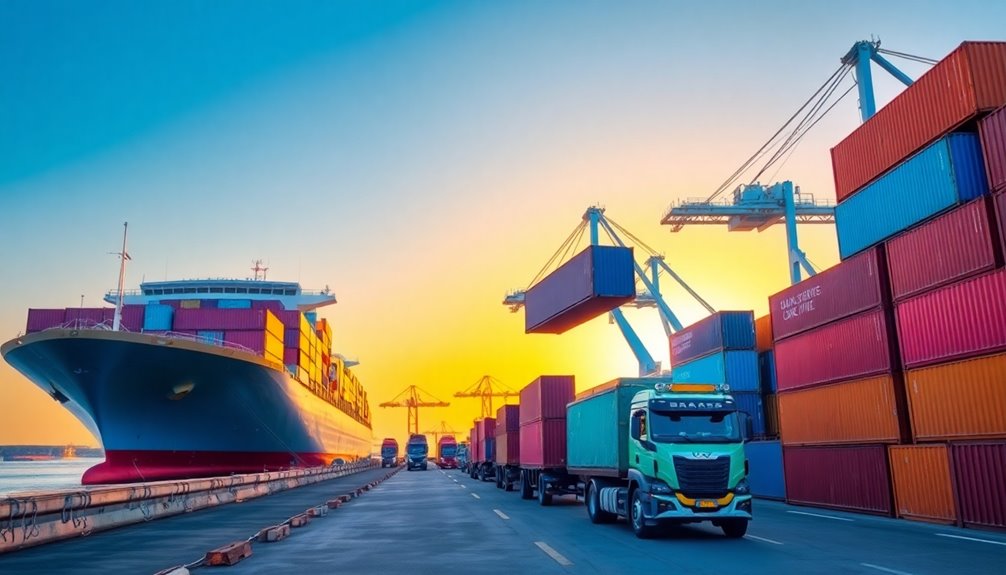
When it comes to international shipping, choosing the right method of transportation is essential for your move. You have several options to evaluate based on your needs.
Air transportation is the quickest way to get your belongings overseas, making it ideal for urgent moves or valuable items. However, it's generally more expensive and comes with limited weight capacity due to smaller cargo space.
On the other hand, sea freight is the most common and cost-effective option for international shipping. It uses standard shipping containers, either Full Container Load (FCL) for larger volumes or Less than Container Load (LCL) if you're shipping smaller amounts that share container space.
Delivery times for sea freight range from 4 to 12 weeks, so it's important to plan accordingly.
When choosing your shipping method, assess factors like time, budget, and the volume of your belongings. If you prefer enhanced security and fewer customs clearance delays, FCL may be the way to go.
Ultimately, the right transportation choice will help guarantee a smooth changeover during your international move.
Moving Services and Logistics
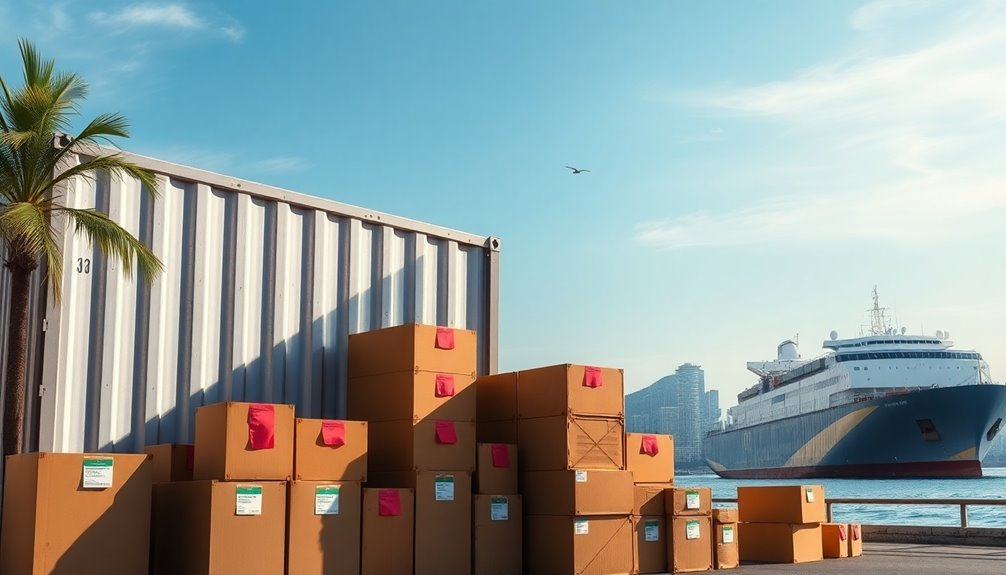
Choosing the right shipping method is just the beginning of your international move; effective moving services and logistics play an essential role in ensuring everything goes smoothly.
Many international moving companies offer door-to-door solutions, handling everything from packing your belongings to customs clearance and unpacking at your new home.
When shipping your belongings, you'll need to decide between Full Container Load (FCL) and Less Than Container Load (LCL). FCL gives you exclusive use of a container, reducing the risk of customs delays, while LCL allows you to share space, making it ideal for smaller shipments.
Comprehensive moving services also manage important documentation, like packing lists and Bills of Lading, which are vital for seamless logistics.
To protect your valuables during transit, check for valuation coverage options offered by your chosen company.
Before your move, consider scheduling pre-move surveys. These assessments help moving companies understand the volume and specific needs of your shipment, allowing them to create a tailored logistics plan that meets your budget and timeline.
With the right moving services, your international relocation can be a hassle-free experience.
Essential Documentation
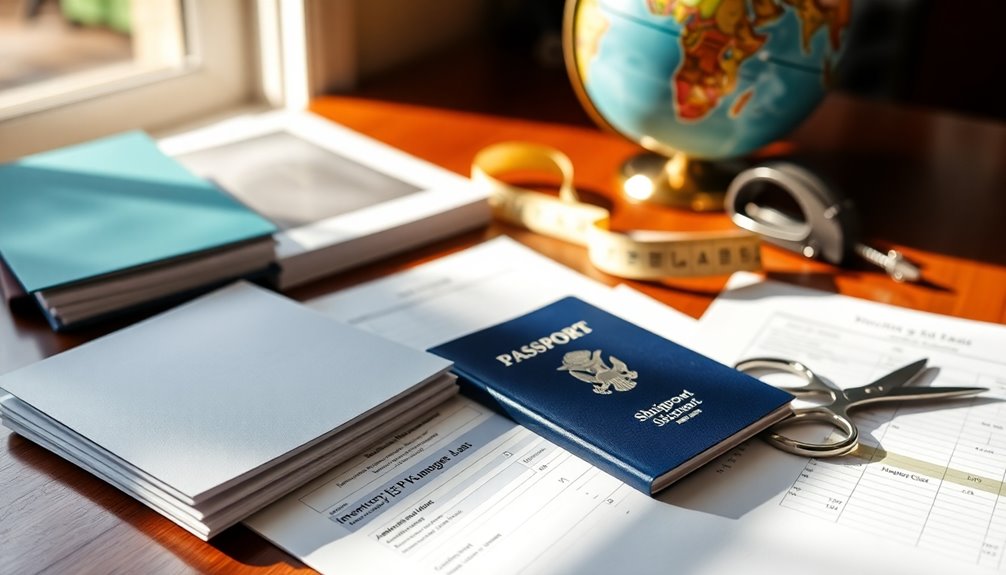
Essential documentation is essential for a smooth international move, as it guarantees your belongings clear customs without a hitch.
Start by creating a detailed packing list that outlines all items being transported; this is important for customs clearance. You'll also need a Bill of Lading, which serves as both a receipt and a document outlining shipment details. This helps with tracking your shipment and managing customs.
If you can't be present during the move, consider preparing a Power of Attorney form. This authorizes your international moving company to manage customs arrangements on your behalf.
Don't forget to include copies of your passport or ID; these are necessary for international shipping to verify your identity and citizenship.
If you're shipping vehicles, additional documentation like vehicle titles and import permits will be required. These documents confirm that your vehicles comply with the regulations of your destination country.
Expatriate Guidance

Often, expatriates face unique challenges that require thorough preparation and research before relocating. When you plan your move, it's crucial to understand your destination country's visa and residency requirements, as many nations have specific rules about length of stay and work permits. This planning and preparation can greatly ease your change.
Familiarize yourself with local customs and regulations, including cultural norms and legal obligations. Engaging with local expat communities can provide valuable support and insights, helping you adjust more seamlessly to life abroad.
Creating a detailed moving checklist is important; it should encompass packing, shipping logistics, and necessary documentation. This checklist will keep you organized and reduce stress during the relocation process.
When budgeting for moving expenses, consider not just shipping costs but also temporary housing and living expenses. Don't forget to account for potential customs duties and taxes in your destination country, as these can impact your finances greatly.
Selling and Storing Items

As you prepare for your move, it's vital to tackle the process of selling and storing items with a clear strategy. Start by decluttering your belongings. Divide them into categories: items to sell or donate, those to store, and essentials to bring. This can greatly reduce moving volume and costs.
For selling, utilize online platforms like Craigslist or OLX, and consider hosting garage sales. Focus on non-sentimental items that can be easily replaced, as this can generate funds for your moving expenses.
When it comes to storing, think about long-term storage solutions like storage units or trusted individuals for sentimental items that can't be transported immediately. Make certain your stored items, such as appliances and furniture, are safely packed and organized to prevent damage.
As you assess the costs, weigh shipping against replacing appliances and furniture, especially since US items may not fit well in European homes. Additionally, consider using advanced filtration systems in your vacuuming process to ensure your stored items remain dust-free and in good condition.
Creating an inventory list of all your stored items is vital for keeping track of them in the future. This organized approach will make your move smoother and more manageable.
Frequently Asked Questions
What Is the Cheapest Way to Ship Belongings Internationally?
The cheapest way to ship your belongings internationally is by opting for sea freight, as it's often 12 to 16 times more affordable than air freight for larger shipments.
If you have a smaller load, consider Less than Container Load (LCL) shipping, which lets you share container space with others.
To save even more, book your shipping at least two months in advance and compare quotes from different companies for the best deal.
Can You Ship Personal Items Internationally?
Yes, you can ship personal items internationally.
You've got options like air freight for quick deliveries or sea freight for larger shipments, which is usually more affordable.
Just remember to create a detailed packing list for customs and gather necessary documents like a Bill of Lading.
Also, check the destination's customs regulations to avoid issues.
For electrical appliances, consider whether they'll work properly with local voltage before deciding to ship them.
How Much Does It Cost to Move All Your Belongings to Another Country?
You're about to commence a thrilling adventure, but how much will it cost to move all your belongings to another country?
It typically ranges from $1,000 to $10,000, depending on factors like volume and shipping method.
If you're looking for speed, air freight's the fastest but pricier. Sea freight is more budget-friendly, especially for larger shipments.
Don't forget to take into account packing services and customs fees in your overall budget!
What to Do With Your Stuff When You Move to Another Country?
When you move to another country, start by sorting your belongings into essentials, non-essentials, and sentimental items.
Decide what to sell, donate, or store based on their importance. Consider the cost and practicality of shipping items like appliances, which mightn't work with local electrical systems.
Create a detailed inventory and packing checklist, as it'll help streamline your move and ease customs clearance in your new home.
Conclusion
In the whirlwind of relocating internationally, you're not just moving your belongings; you're commencing a new adventure. By choosing the right transportation methods, understanding logistics, and preparing essential documentation, you can make this journey smoother. Don't forget to explore your options for selling or storing items you can't take. With a little planning and guidance, you'll turn the chaos of moving into a seamless shift, setting the stage for a fresh start in your new home.
